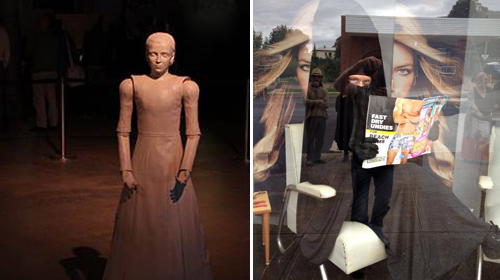Latest News Archive
Please select Category, Year, and then Month to display items
07 January 2018
Photo Charl Devenish
 Dr Anneke van der Spoel van Dijk is invested in contributing
to the global effort of stopping TB by 2035.
Dr Anneke van der Spoel van Dijk is invested in contributing
to the global effort of stopping TB by 2035.
The work of Dr Anneke van der Spoel van Dijk investigates the spread of TB in the Free State population using techniques such as next generation sequencing, spoligotyping and MIRU-VNTR typing. Dr Van der Spoel van Dijk, a senior medical scientist in the Department of Medical Microbiology at the University of the Free State (UFS) also looks at drug resistance in her research. This work informs decisions about how best to treat patients with multidrug-resistant TB (MDR-TB).
She employs rapid molecular techniques to track one of Africa’s most serious diseases, tuberculosis (TB).
Drug resistance
Scientists assist the National Health Laboratory Service and Department of Health in trying to refine the diagnostic tools to identify these cases earlier. Dr Van der Spoel van Dijk explains: “Until recently, it took up to two years to fine-tune treatment decisions for patients with MDR-TB. Patients get a cocktail of anti-TB drugs, but it takes time to find the right combination. Re-infection and relapse (patients stopping treatment for several reasons) add to the diagnostic and treatment management challenges.
Enormous impact
“Now doctors can reduce the time needed for diagnostic certainty to about seven days, while new drugs allow reduction of treatment from more than 18 to nine months. This can have an enormous impact on the life of many patients.”
Dr Van der Spoel van Dijk’s work forms part of research in the faculty looking at resistance development in TB strains. She is currently also doing her doctoral thesis on the differences and incidence of MDR-TB among adolescents versus adults. Dr Van der Spoel van Dijk says: “It is a complicated picture, but we hope to unravel it to support better diagnostic tools and patient care.”
As part of the National Health Laboratory Service, her department is playing an important role in TB diagnostics and the training of scientists and future pathologists. “Our work is contributing to the global vision to stop TB by 2035,” Dr Van der Spoel van Dijk says.
Art2 + x [science] = 2 continents fused
2014-04-02
|

Left: Diamandini by Dr Mari Velonaki. Right: 'Muslim Hairdrying' by Cigdem Aydemir.
|
Mzanzi resistance art is set to fuse with Australian interdisciplinary art in an experimental ‘boiling pot’ – right here on our Bloemfontein Campus.
Program for Innovation in Artform Development (PIAD)
Kovsies and the Vryfees forged a highly-innovative link between South African and Australian artists by establishing the Program for Innovation in Artform Development (PIAD). Together we are embarking on a three-year collaboration to see what happens when experimental and community arts are fused.
The project includes intercultural laboratories, art and science exchange programmes, public forums as well developing and presenting experimental art.
Art(ist)s meet science(tists)
For the first time, two Australian artists will visit our Faculty of Natural and Agricultural Sciences in an exchange programme. The one is Dr Mari Velonaki, director of the Creative Robotics Lab at the University of New South Wales. The other is Dr Nigel Helyer, an honorary research fellow at the SymbioticA biotechnology lab at the University of Western Australia.
Dr Velonaki will explore new links between humans and computers that are community orientated. She will work closely with Prof PJ Blignaut and the Department of Computer Science and Informatics. In turn, Dr Helyer will investigate genetic coding and intercultural musical compositions. He will collaborate with Prof J Albertyn at the Department of Microbial, Biochemical and Food Biotechnology.
Vryfees 2014 and 2015 will also see contemporary and highly-experimental works from renowned Australian artists Cigdem Aydemir and Jess Olivieri. In addition, the festival will present OPENLab – a new national laboratory for early and midcareer artists and creative practitioners interested in making art in the public realm.
The programme is the result of a close partnership between the Vryfees and Situate Art in Festivals, managed by Salamanca Arts Centre in Australia (www.situate.org.au).
It also enjoys the support of:
- Australia Council for the Arts;
- NSW Artists Grant Scheme administrated by the National Association of the Visual Arts LTD;
- Situate Art in Festivals;
- National Lottery Distribution Trust Fund and
- Modern Art Project SA.
For more information on Piad visit www.vryfees.co.za or https://www.facebook.com/pages/PikoPiad/1435158293383474.